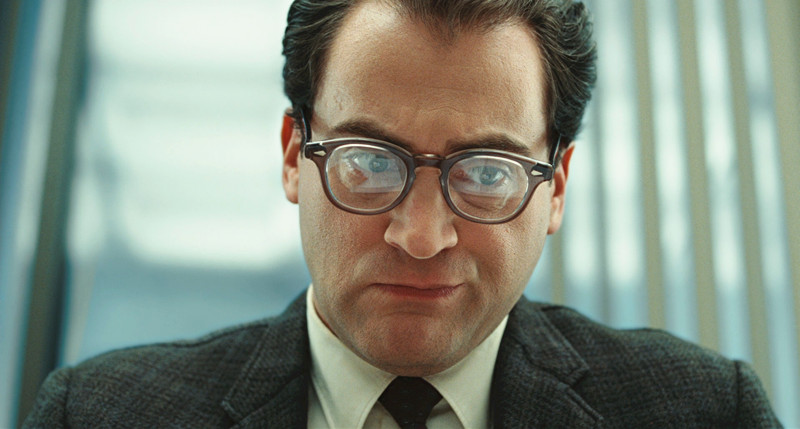
Genius, pretentious, self-absorbed, visionary, neurotic… Charlie Kaufman has been labelled in virtually every conceivable way. Vigorously loved by many, arduously hated by others, if there’s something about his movies is that they don’t leave anyone indifferent.
You’d be hard-pressed to find a more polarizing screenwriter working today, but it’s hard to describe Kaufman’s style and pin down what exactly makes it so stimulating. His movies seem to be in open rebellion with conventional storytelling, deliberately designed to subvert every preconception and trope there is to be broken.
From sci-fi romances to absurdist comedies and nihilist dramas, Kaufman has shown that he is not bound to any genre but to his own existentialism. He is a filmmaker obsessed with his own existence and mortality, and he uses his work as self-therapy, pouring them with metaphysical ideas and weaving through moral dilemmas like a surgeon. His brain melters usually operate through meta and self-referential labyrinths where the line between fiction and reality is often blurred.
Depending on how you approach them, his films can be uplifting or depressing, but more likely will provide you with some kind of insightful observation. If you enjoy his healthy doses of existentialism, here are ten movies that will definitely scratch that itch.
1. Barton Fink (1991)
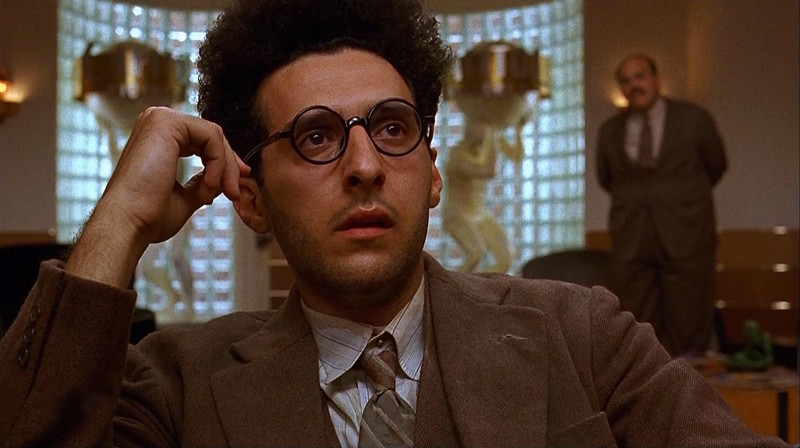
Many Kaufman characters suffer from the mighty writer’s block and impostor syndrome. The burden of the struggling artist is actually one of his most recurrent tropes, exposing how their creative endeavors aren’t all smooth sailing, but more often than not involve self-doubt, fear and rejection. This dark comedy by the Coen Brothers incorporates all of these themes with a similar disdain for Hollywood’s studio system, painting the industry’s top brass as oblivious and vulgarian jerks, while poking fun at the delusions of grandeur that intellectuals regularly experience.
The movie follows Barton Fink, a self-absorbed New York playwright who tries his luck in California to write for the pictures. Fink sees himself as a “writer of the common man”, convinced that his work will truly be transcendent and not just empty entertainment (not unlike Caden Cotard in Synecdoche, New York).
Finishing his first film script proves to be a hellish nightmare for Fink, where he finds himself besieged by deadlines and forced to deal with his lack of inspiration, sense of failure and the paradox of pursuing commercial freedom while preserving creative integrity. If you’re looking for a sharp meta commentary on the arduous thought-process of a screenwriter sparkled with dreadful surrealism, this is your safest bet.
2. Punch-Drunk Love (2002)
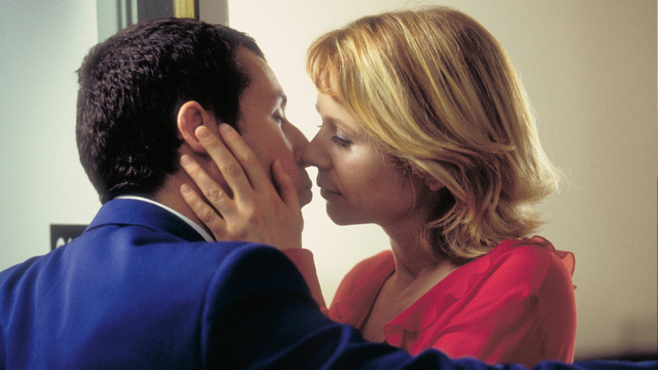
If after watching Eternal Sunshine of the Spotless Mind you’re still aching for more quirky, oddball romances, look no further than this Paul Thomas Anderson classic. In a sense, Punch-Drunk Love is the ultimate anti-Adam Sandler movie, one that puts an arthouse spin on his signature dull rom coms, ironically led by Sandler himself in one of his best performances ever as Barry Egan.
Barry is a socially awkward and childish man who hides his inner anxiety in a facade of outward playfulness. He’s constantly bossed around by his co-workers and emasculated by his two obnoxious sisters. As is the case with a lot of Charlie Kaufman’s films, the male protagonist is lonely, depressed and lacking any kind of self-respect. But for all his little idiosyncrasies, Barry is a guy worth cheering for. He goes through a lot in this movie, and at times it can be overwhelming to see him fail miserably. But watching him turn his life around, find real love and most importantly, learn to love himself is nothing short of cathartic.
3. Inland Empire (2006)
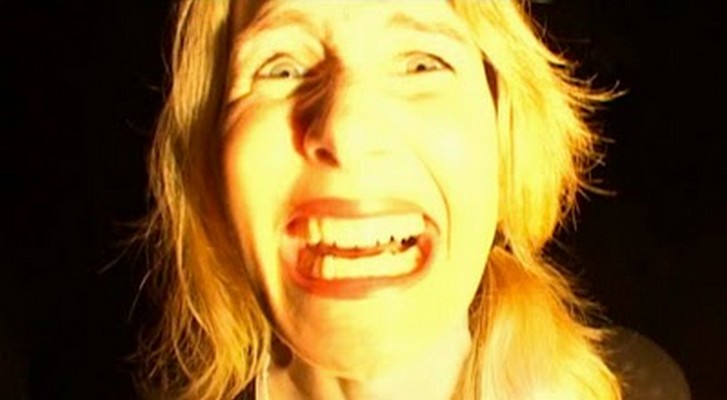
From Being John Malkovich and Adaptation to I’m Thinking of Ending Things, Kaufman has often explored the concept of shifting identities in his films, where characters disguise themselves under fake personas while projecting their own character traits, desires and fears. The use of multiple planes of reality and layered storytelling ruled by the laws of the subconscious, especially as seen in his latest movie, takes a lot of cues from the master of surrealism himself, David Lynch.
Inland Empire is arguably his most cryptic film, a non-linear mosaic that recounts the tragic life of a pregnant Polish prostitute who’s having a mental breakdown after having murdered the wife of her lover. Most of the story is a twisted retelling of her life, altered to paint herself in a better light, where she adopts a parallel identity as a successful Hollywood actress. As she goes through figments of her imagination, she slowly loses her grip, her real conscience leaks in and the different layers of narrative begin to collide.
Inland Empire is deliberately unsettling and makes good use of Lynch’s intuitive storytelling. But in a nutshell, it’s a poignant movie about an abused woman in despair, unable to cope with guilt and struggling to come to terms with her actions.
4. After Life (1998)
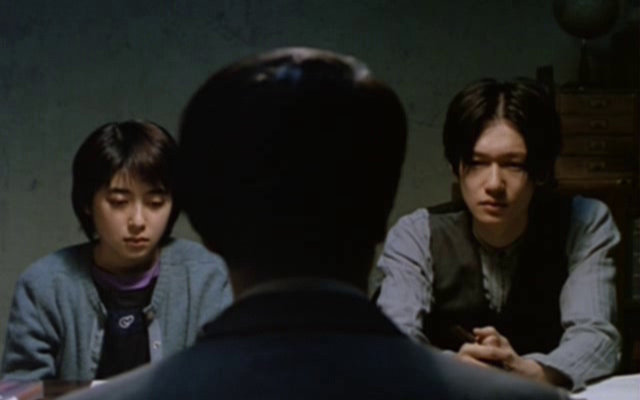
If you could only hold on to one memory from your life, which one would you choose? This thought-provoking premise sets up Hirokazu Kore-eda’s philosophical drama. As the title suggests, the story takes place in a sort of limbo realm between life and death, inside a spiritual hotel where recently deceased people check-in and stay for a week until they determine which memory to keep for eternity.
We see people from all ages and backgrounds, each one of them individually interviewed by the hotel’s staff, where they reminisce about their fondest memories, from childhood anecdotes to romantic encounters. As the deadline approaches, the most indecisive struggle to settle for one, reflecting on their existence and pondering about their lingering regrets. The luckiest ones are granted videotapes highlighting some of the most transcendent events in their lives to help them narrow down their choice, who then upon being selected, are recreated by the staff as stage plays.
After Life is a peaceful rumination on life, with all its joys and sorrows, that perfectly captures the value of memories and human experiences. It’s a movie begging for some introspection that is almost impossible to sit through without contemplating your own personal choice.
5. All That Jazz (1979)
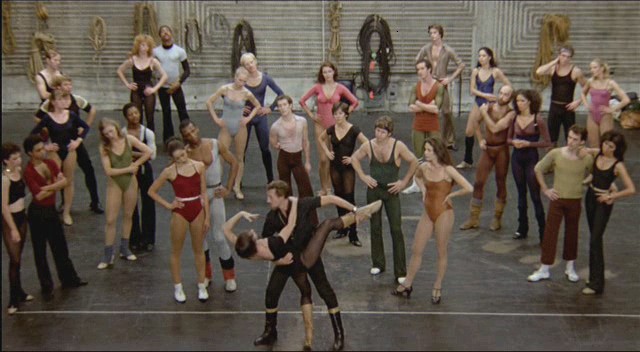
Both a self-aggrandizing extravaganza epic and an honest celebration of life, All That Jazz is as pompous and theatrical as cinema itself. In what is almost considered an existential self portrait of Bob Fosse (the director of the movie), this musical recounts the last days of Joe Gideon. Gideon is a deeply flawed individual, a womanizer obsessed with his work as one of the most brilliant choreographers in musical theater. He struggles to find any semblance of balance between his career and personal life, only to see both collapse in front of his eyes.
The only thing that keeps him going are his daily bottles of pills, and his nauseating perfectionism at work keeps draining his health. If there ever was an ideal movie for a double feature with Charlie Kaufman’s Synecdoche, New York, this is the answer. All That Jazz is a profound self-examination on life, mortality and art as an extension of the artist, intertwined in a dreamlike and emotionally draining spectacle.